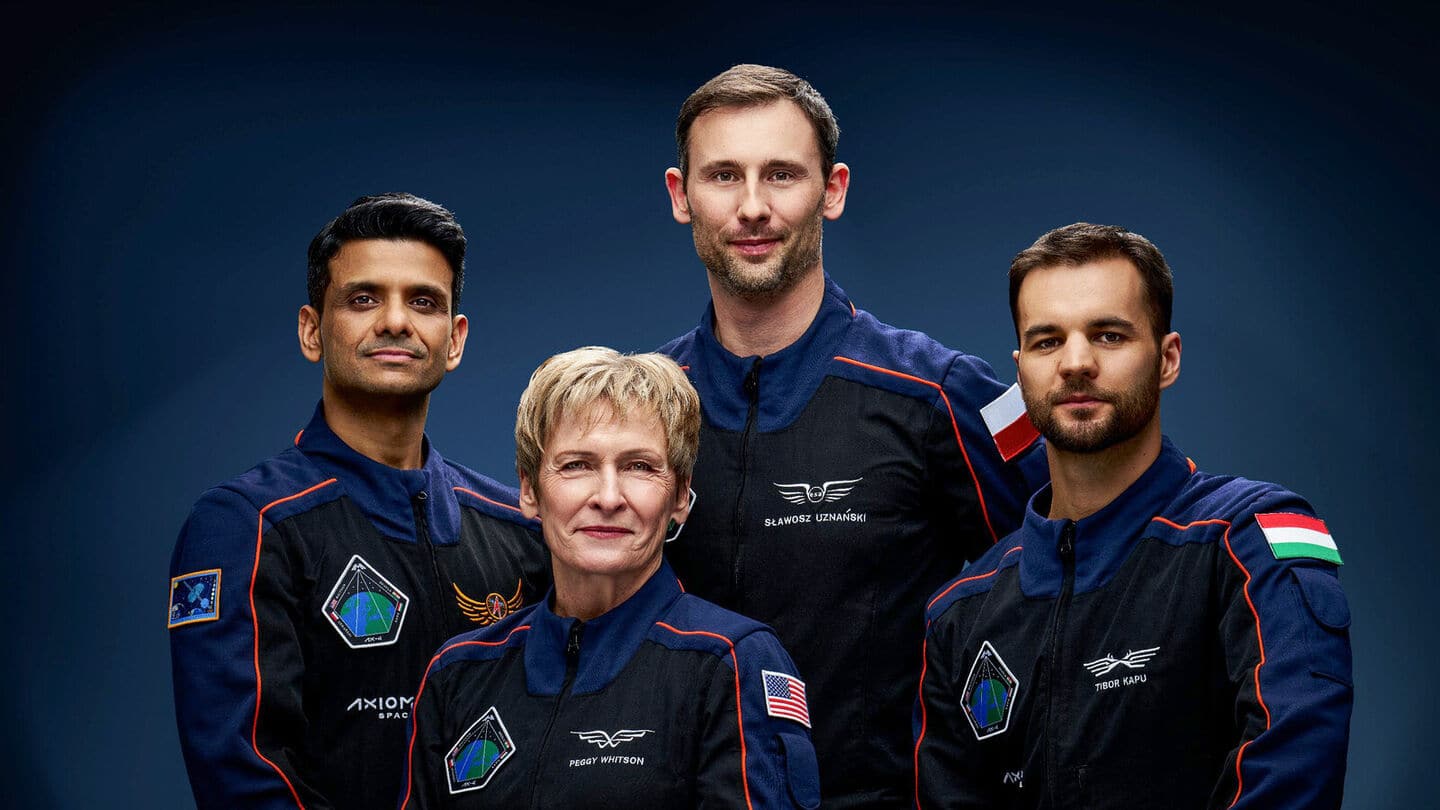
How Shubhanshu Shukla's ISS experiments will benefit Gaganyaan program
What's the story
Shubhanshu Shukla, India's second human in space, is en route to the International Space Station (ISS) as part of the Axiom-4 mission. The spacecraft is scheduled to dock with the ISS tomorrow around 4:30 pm IST, marking the start of a 14-day orbital stay for Shukla and his crewmates. During his time aboard, Shukla will conduct key scientific experiments—including growing Indian superfoods in microgravity and studying the resilience of tardigrades under cosmic radiation.
Space mission
India becomes 4th nation to send humans into space
India's space program is entering a new phase with the Gaganyaan project, a national initiative targeting a crewed mission by 2027. If successful, India will become the fourth nation to independently send humans into space after Russia, the US, and China. The country has already proven its space capabilities with successful missions such as sending an orbiter to Mars and landing near the Moon's south pole.
Mission details
Axiom 4 will provide valuable insights for Gaganyaan mission
Shukla's experience on the Axiom 4 mission will greatly benefit ISRO's Gaganyaan space flight program. Last year, India's space agency confirmed that four astronauts are training for the first crewed mission. The maiden uncrewed test flight of the Gaganyaan program is also expected to take place this year, despite some delays in the overall timeline.
Experiments
Shukla will conduct seven cutting-edge scientific experiments
Shukla will conduct seven cutting-edge scientific experiments designed by Indian institutions during his 14-day stay on the ISS. These experiments span diverse fields, including space agriculture, microbial behavior in microgravity, and cognitive functions. Such research is vital for understanding the long-term effects of space travel and developing technologies crucial for future sustained human presence in space, including the Gaganyaan program.